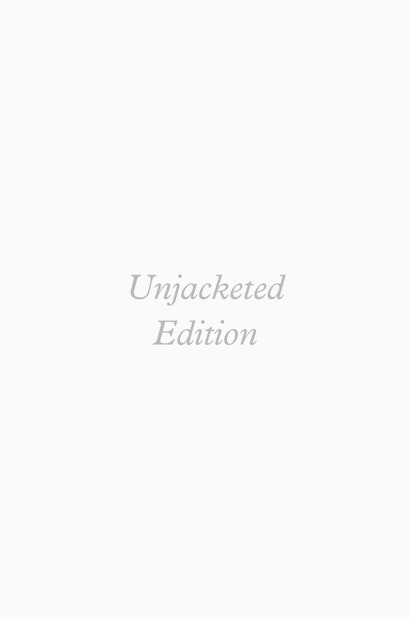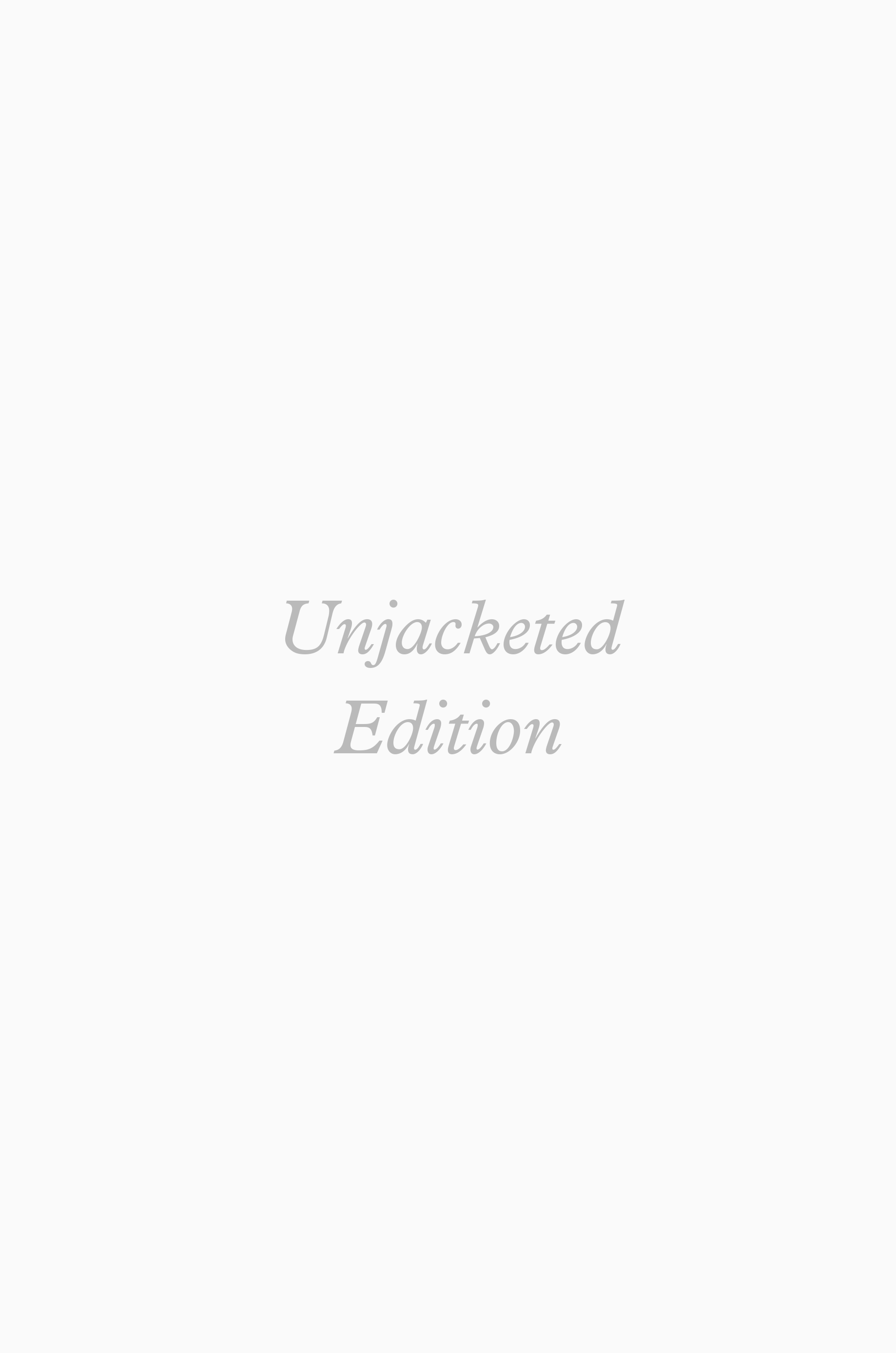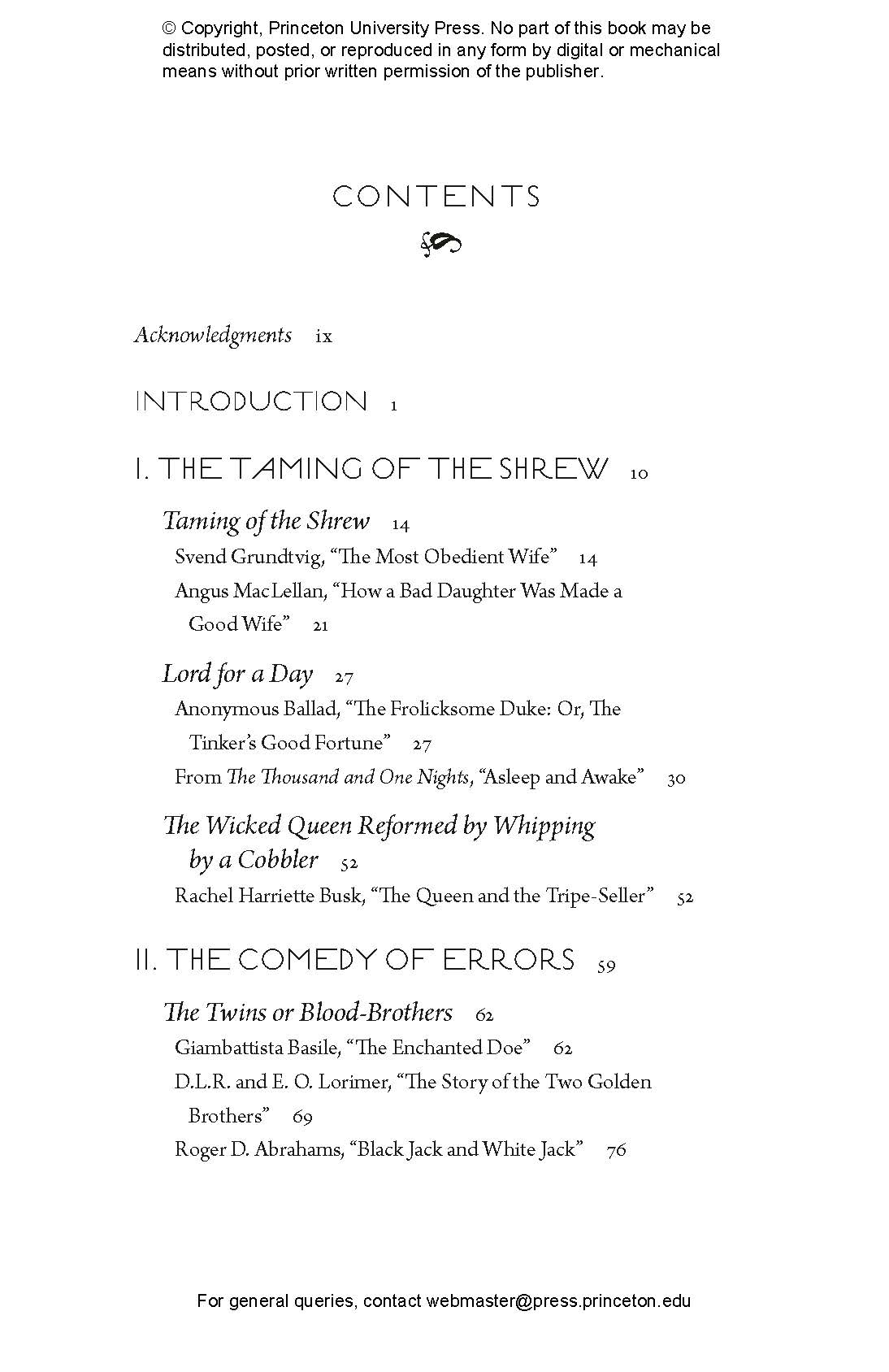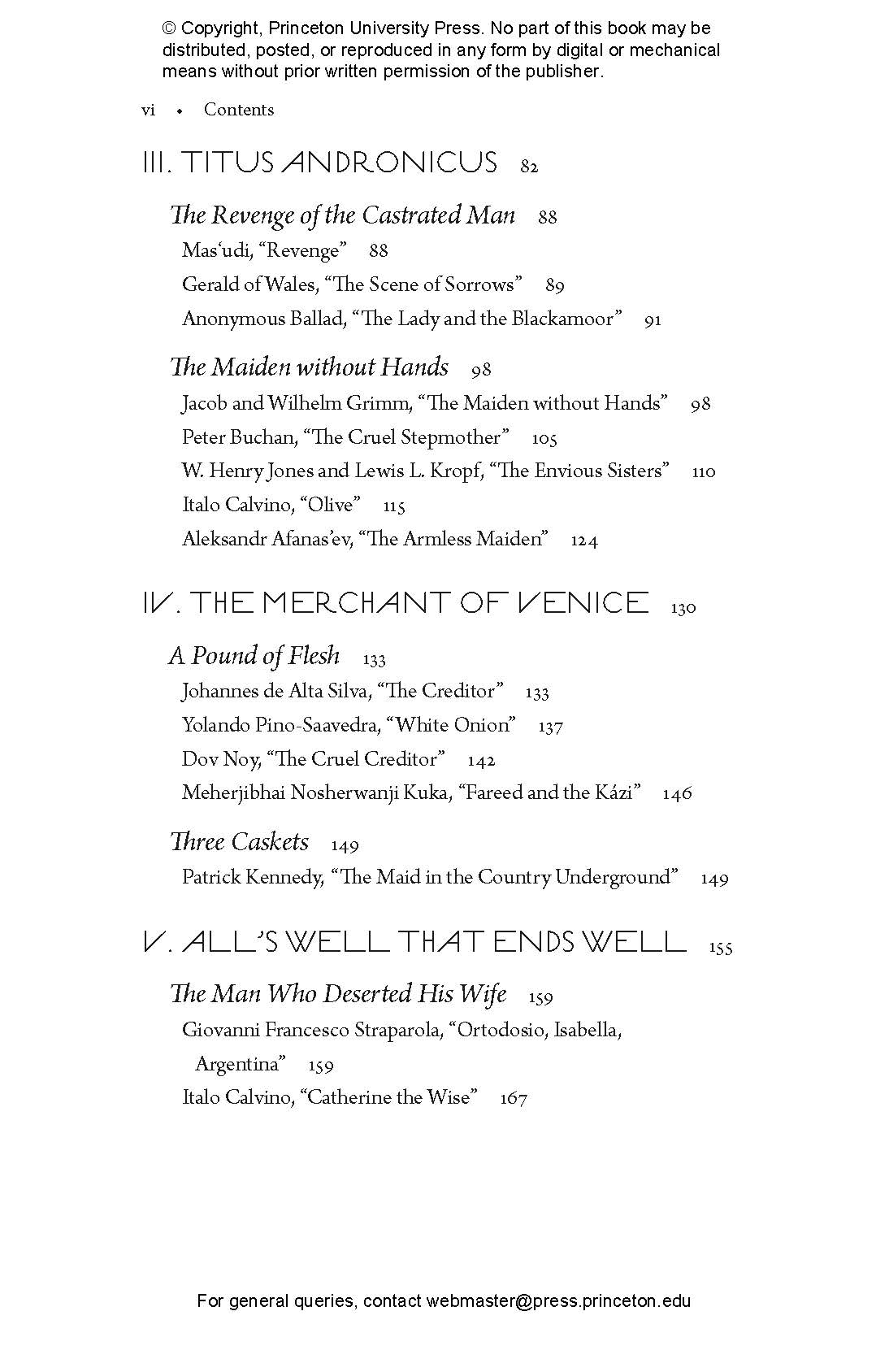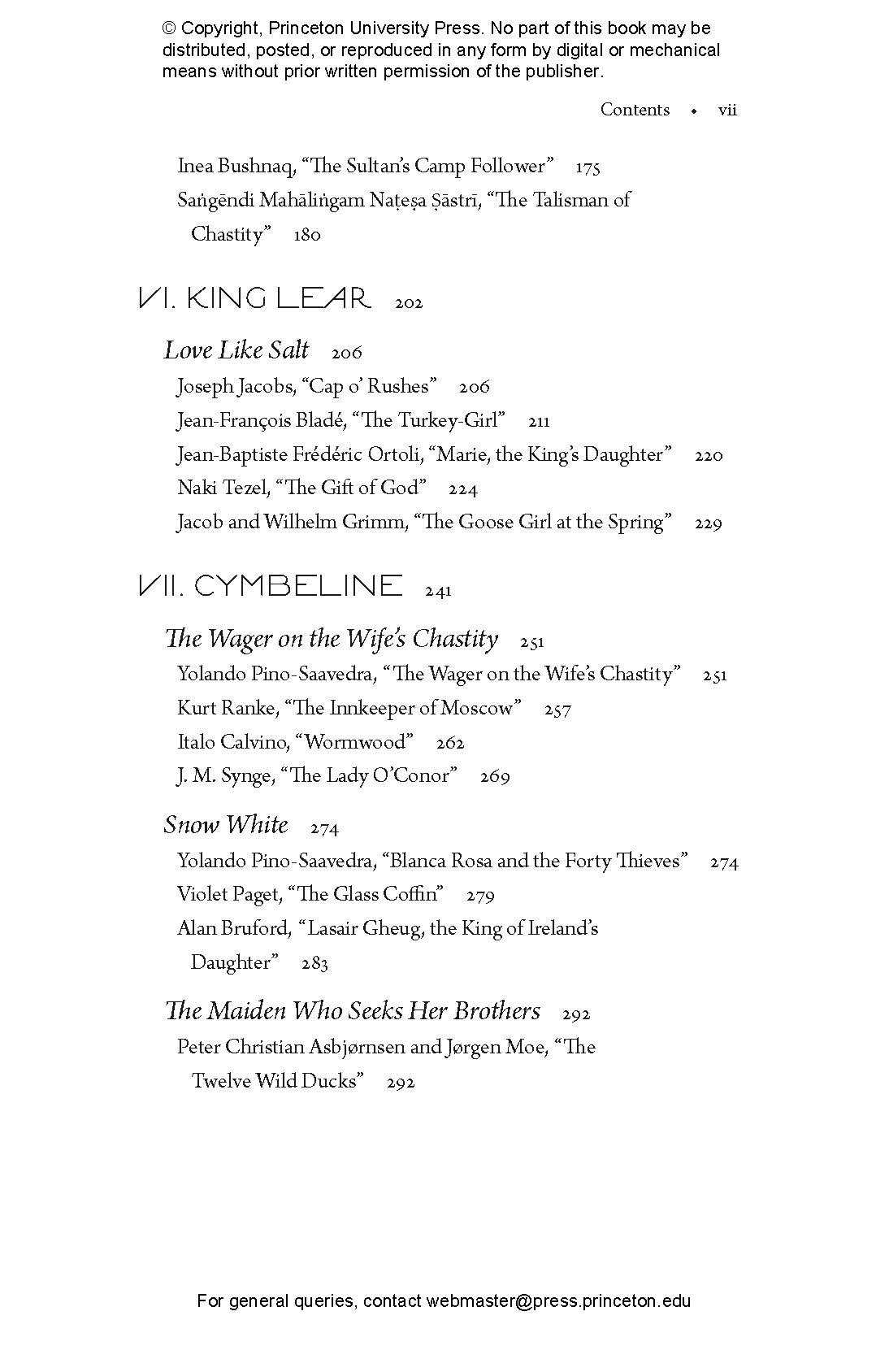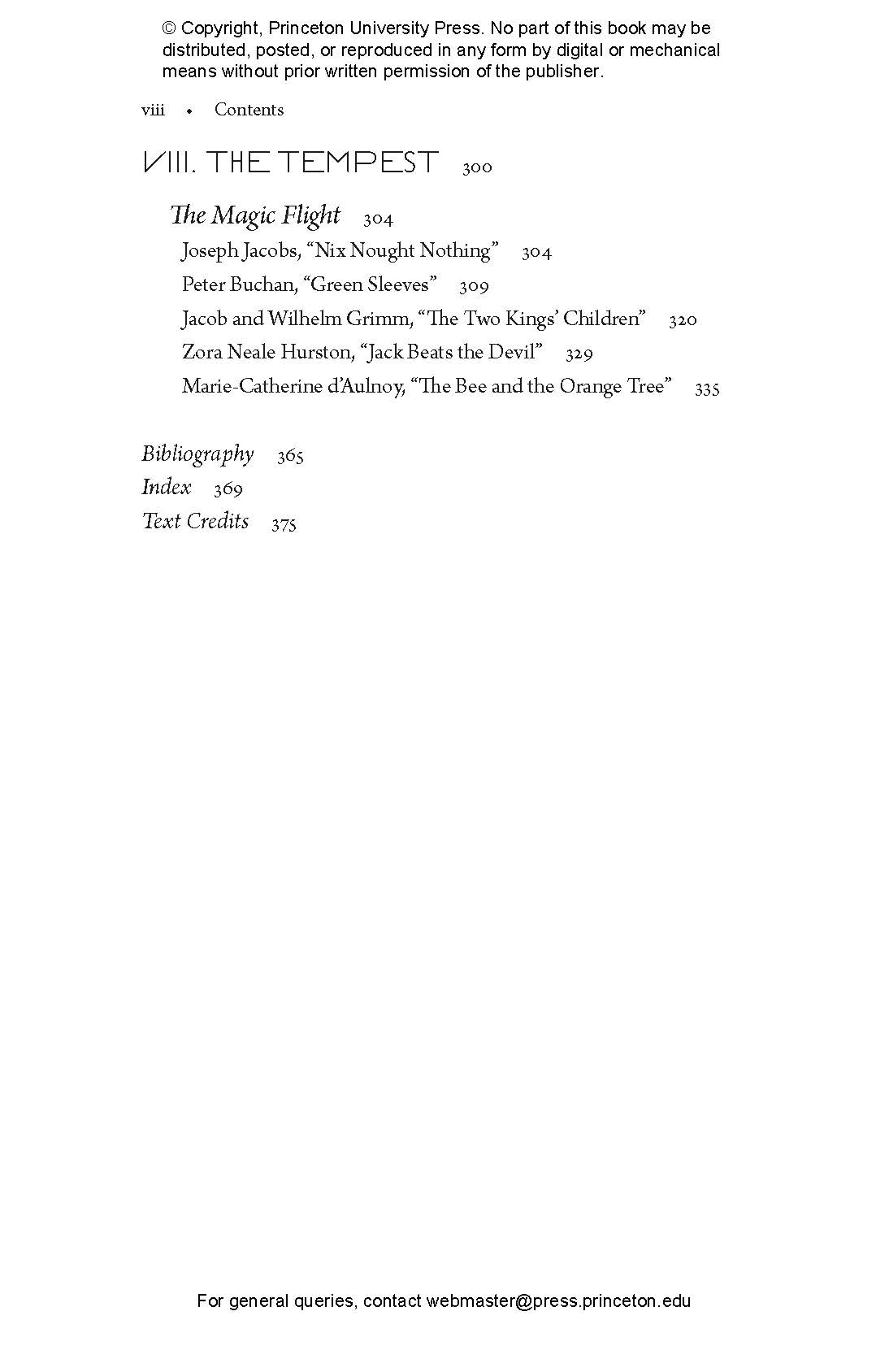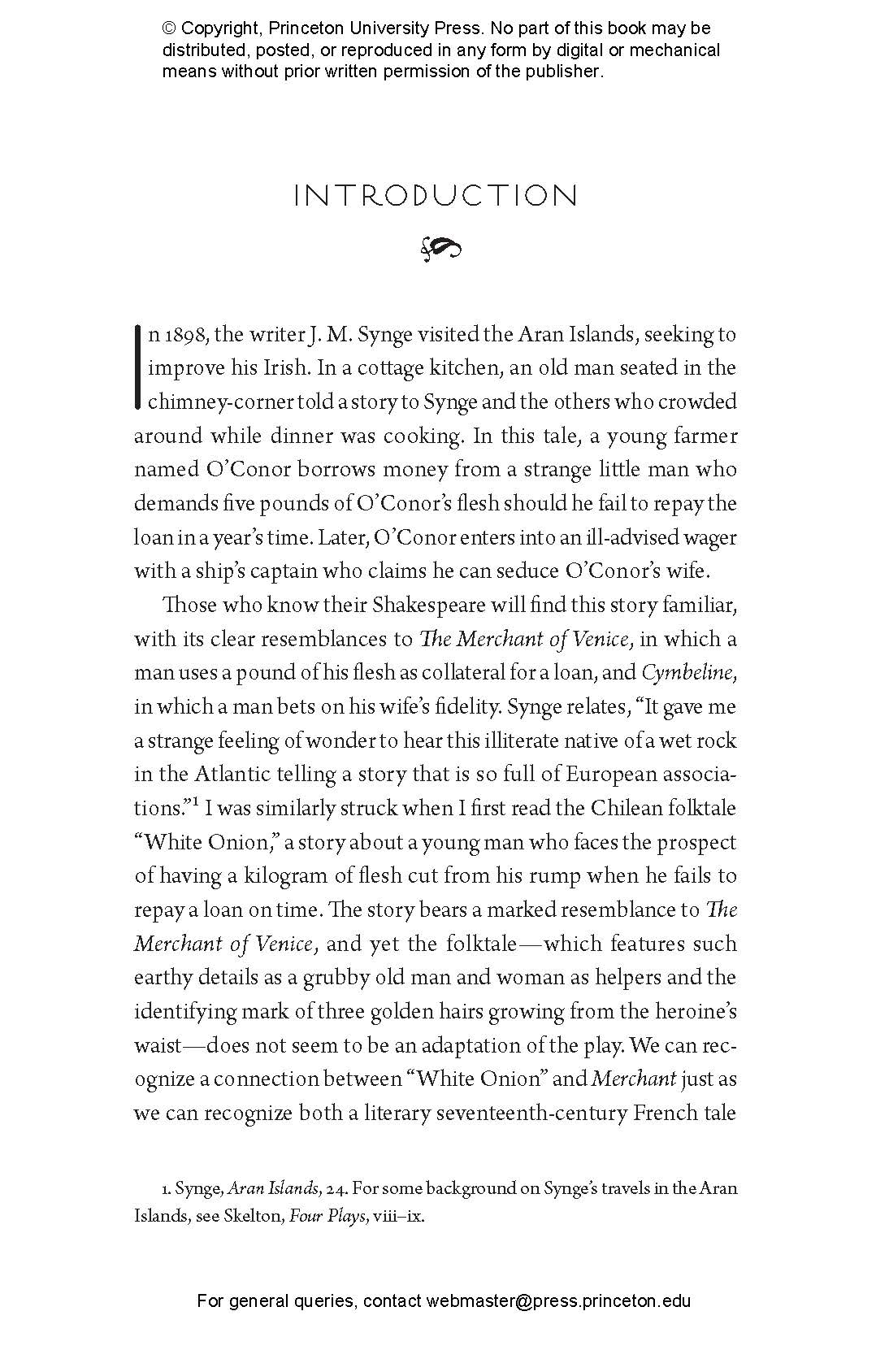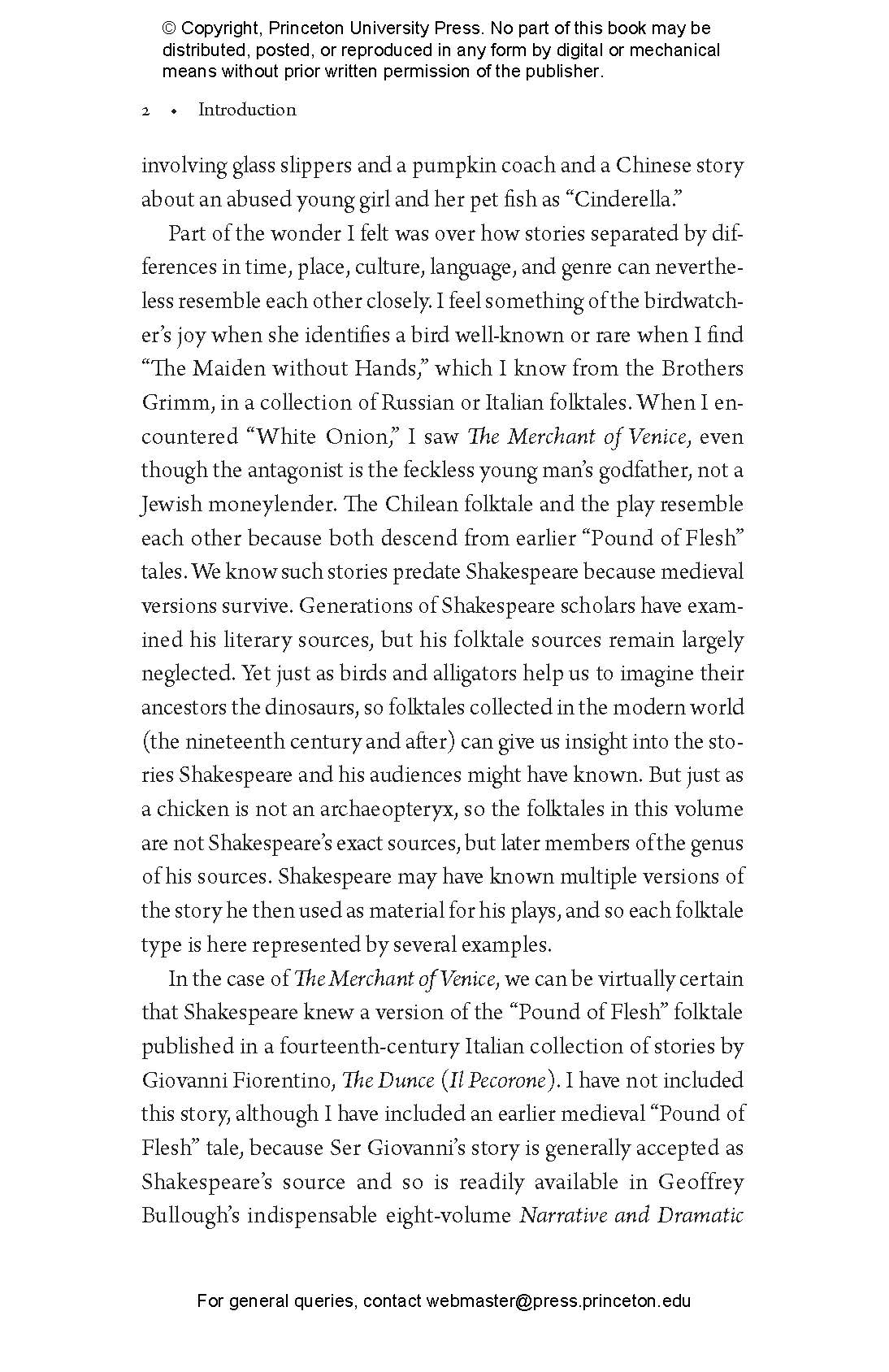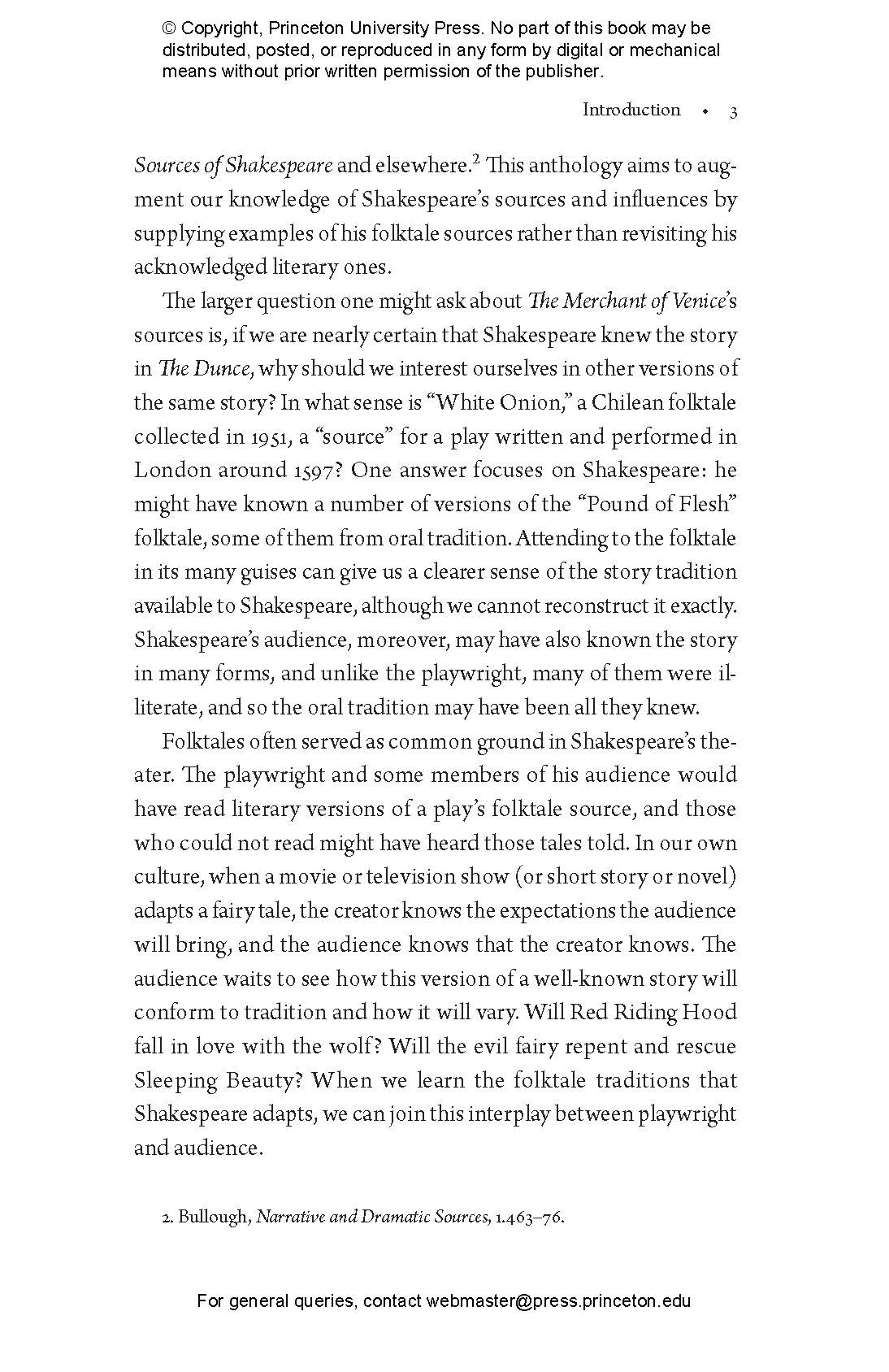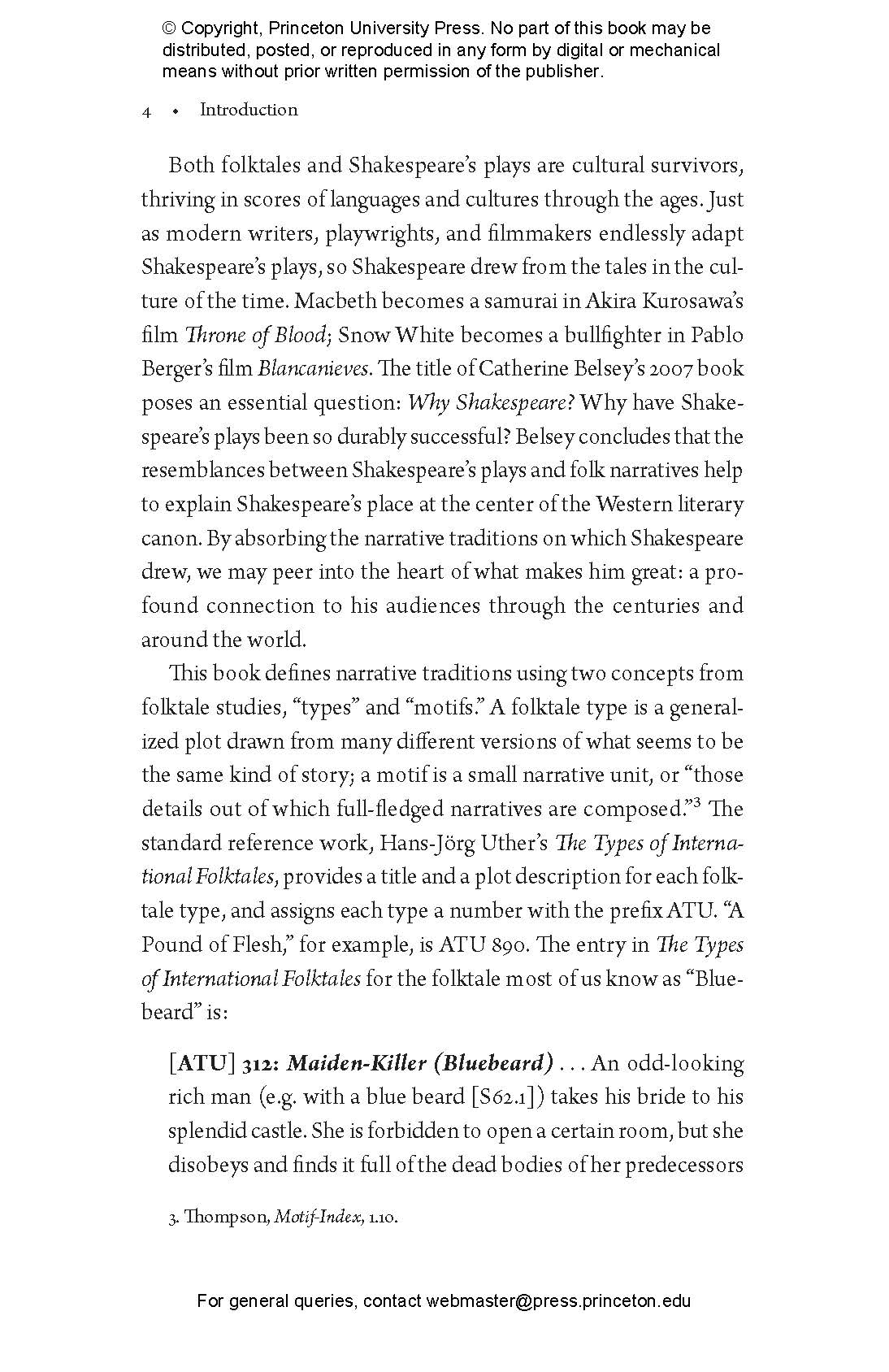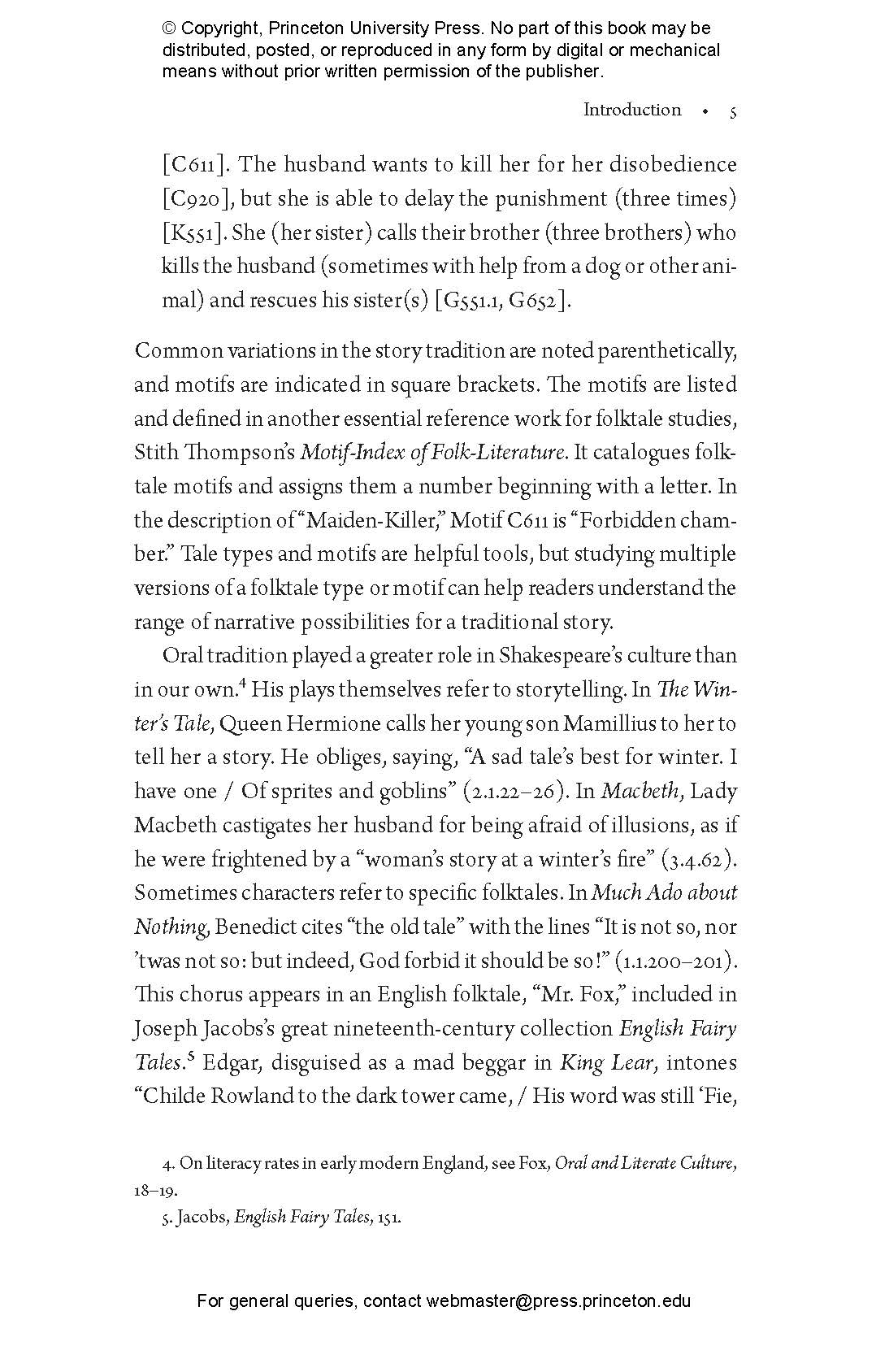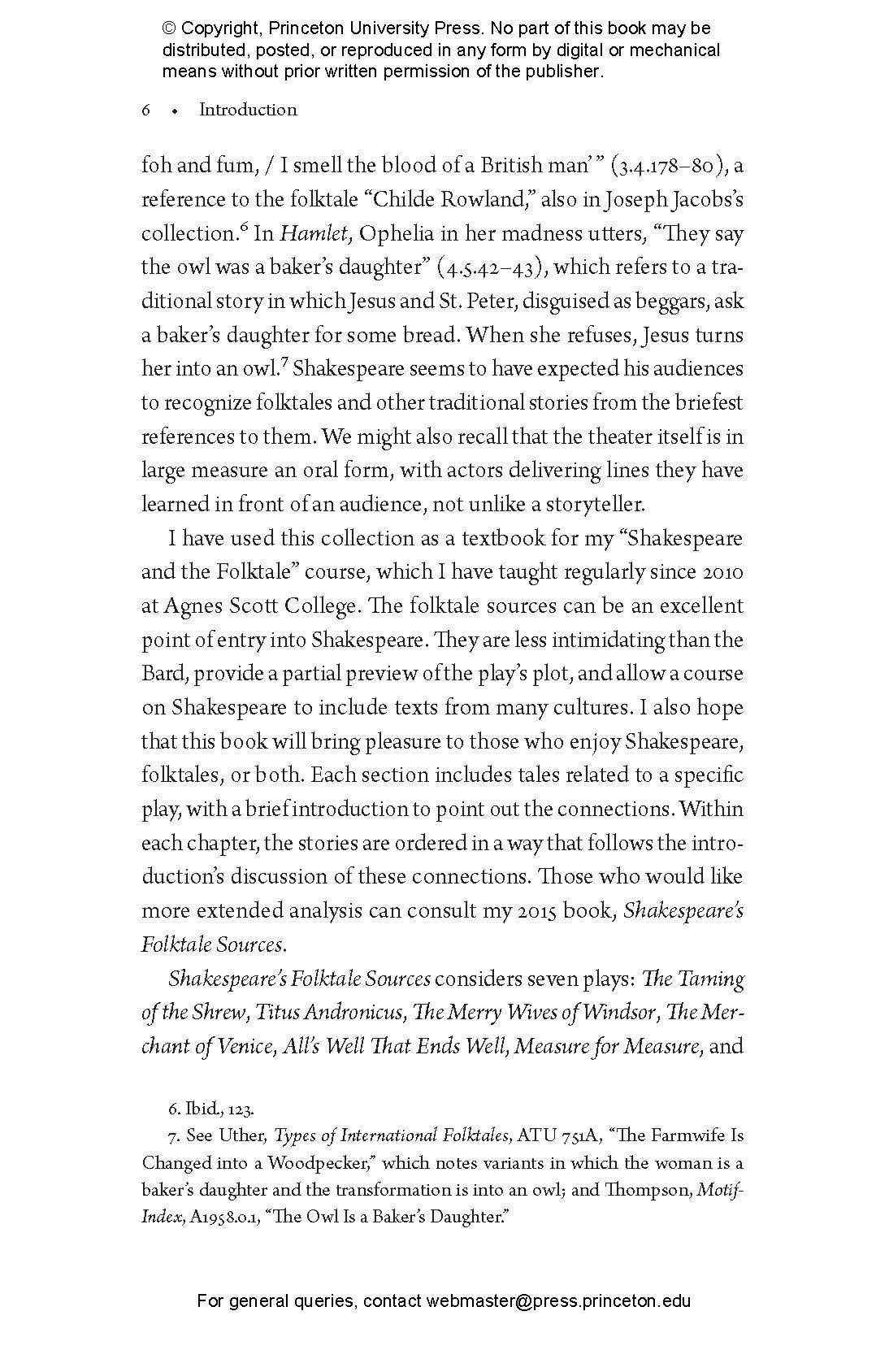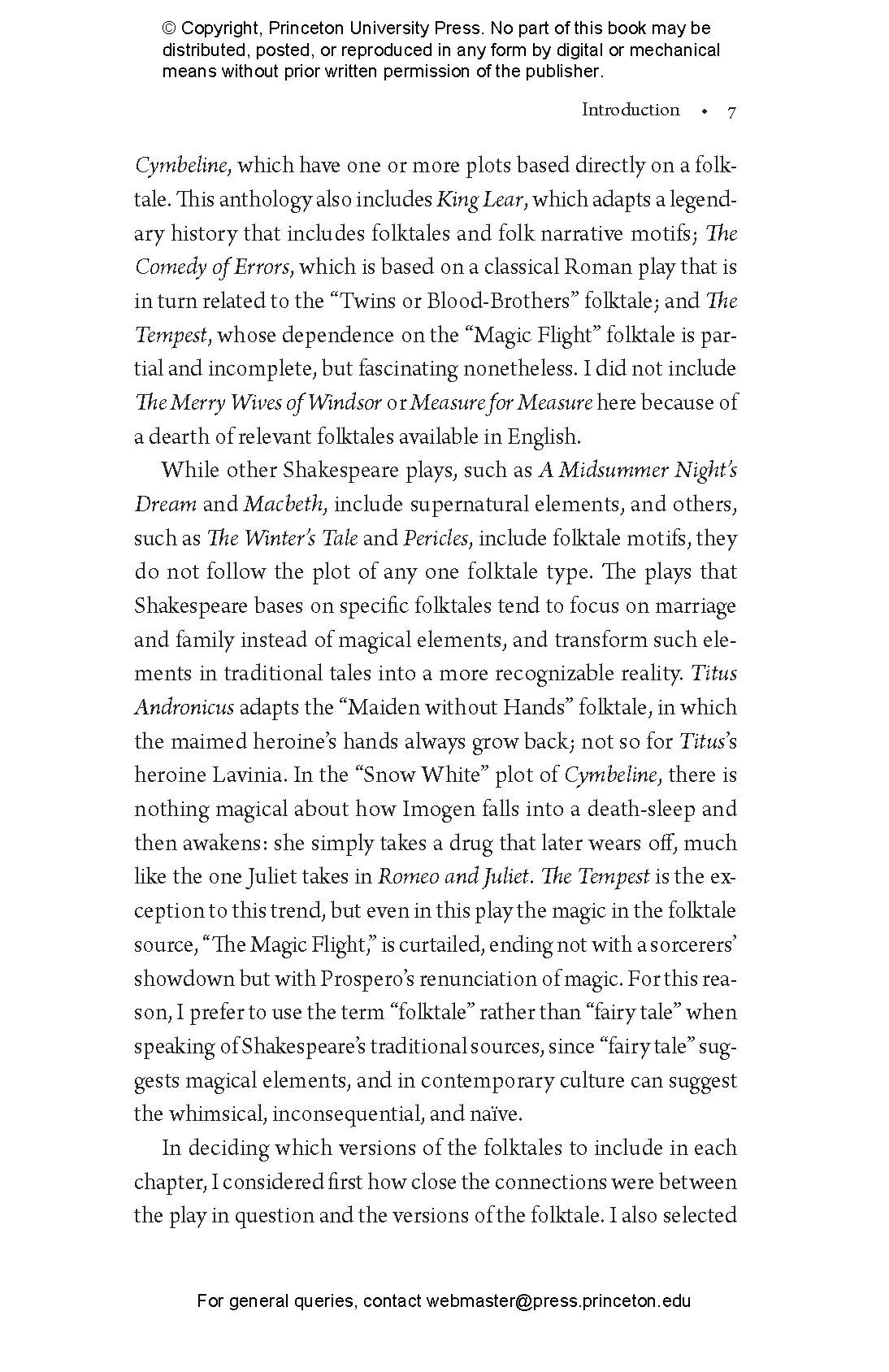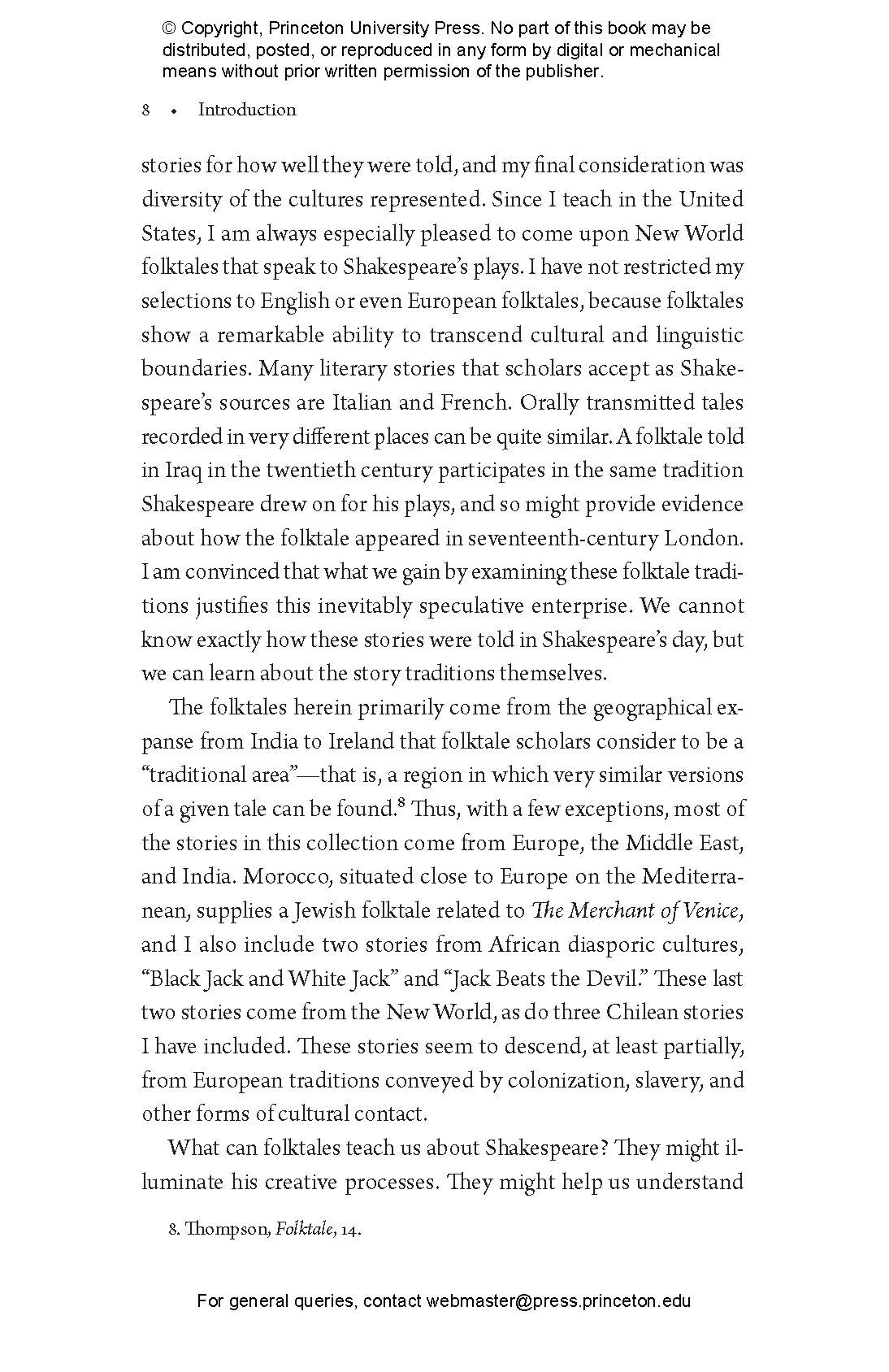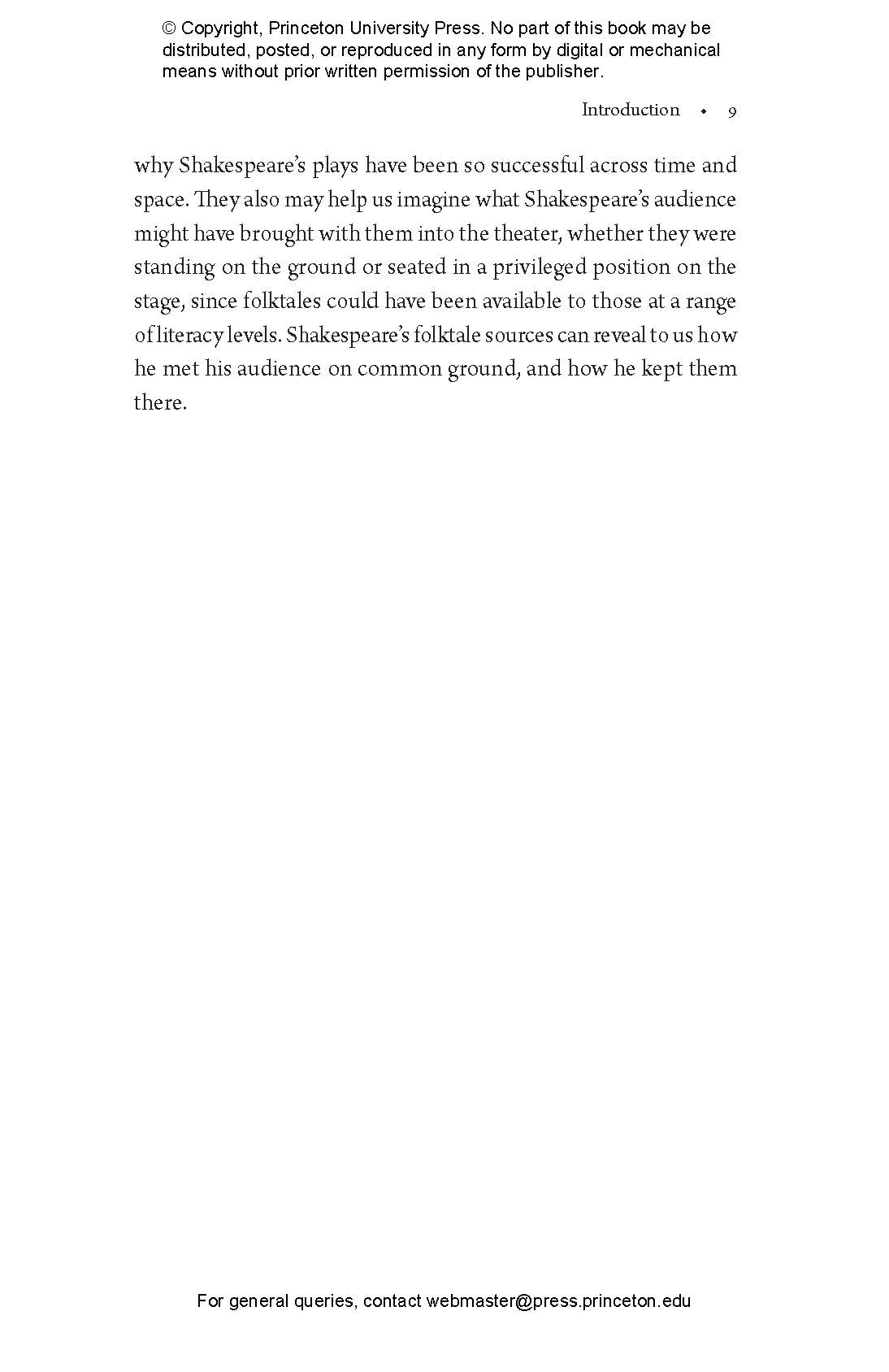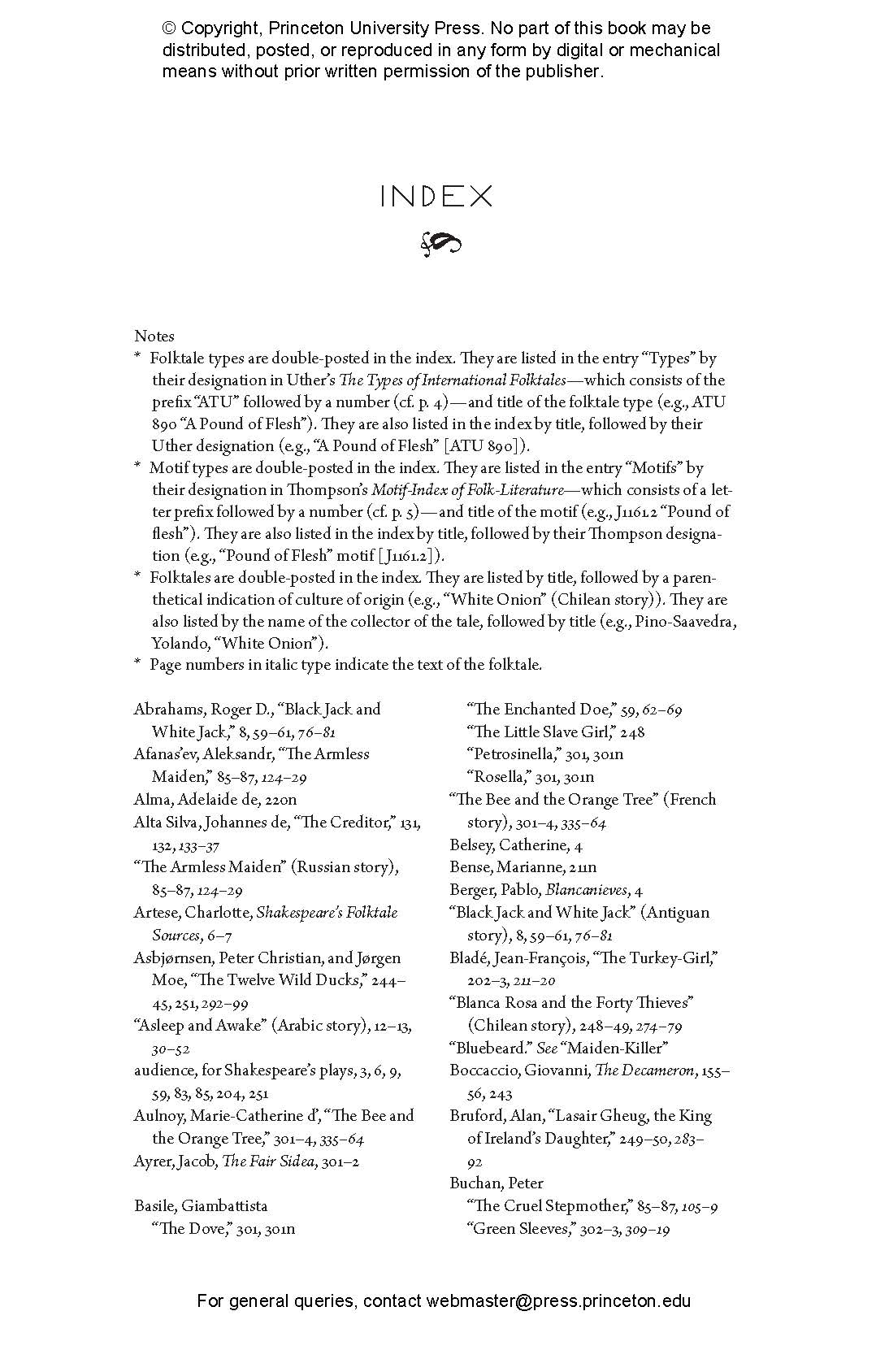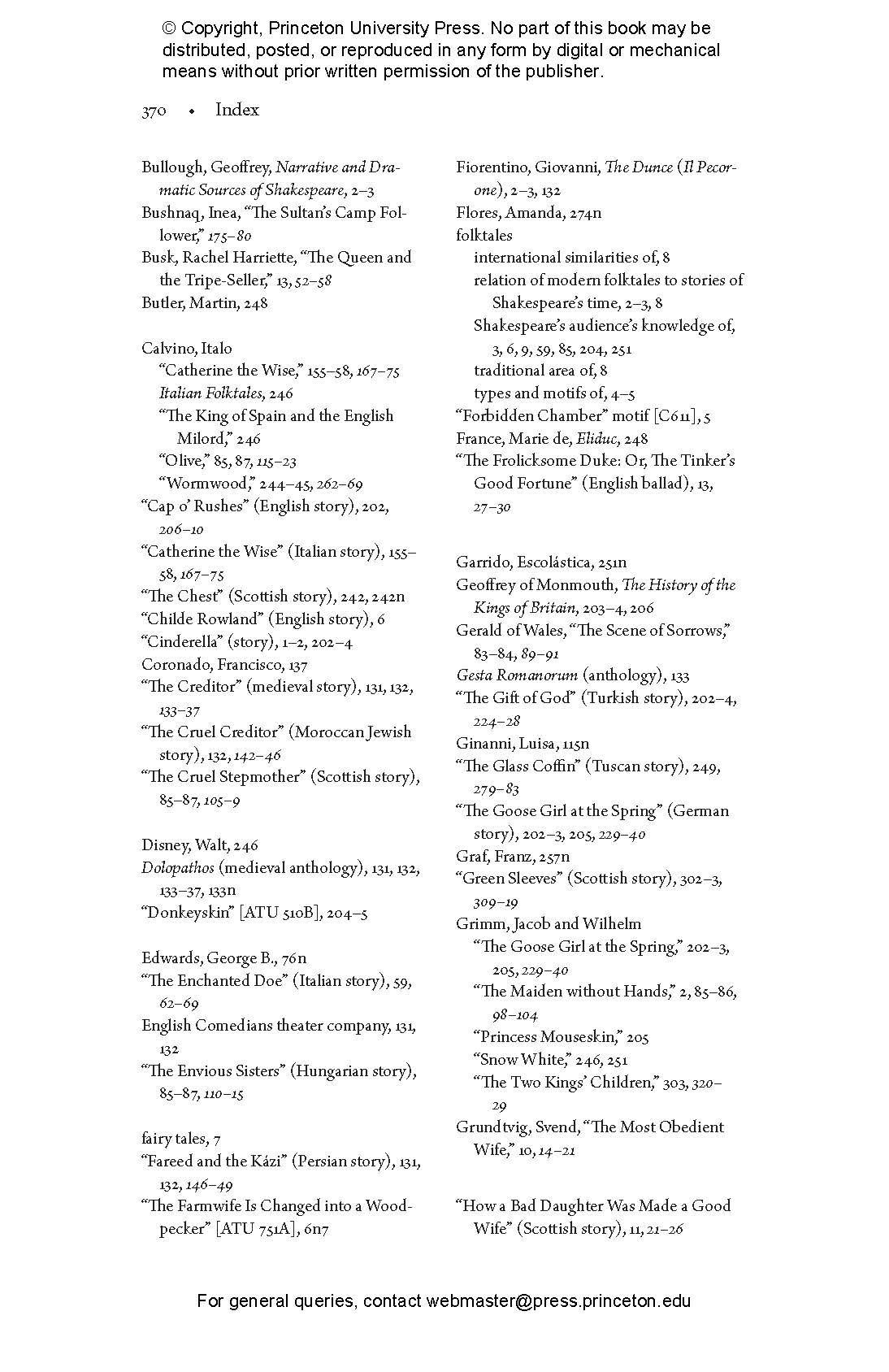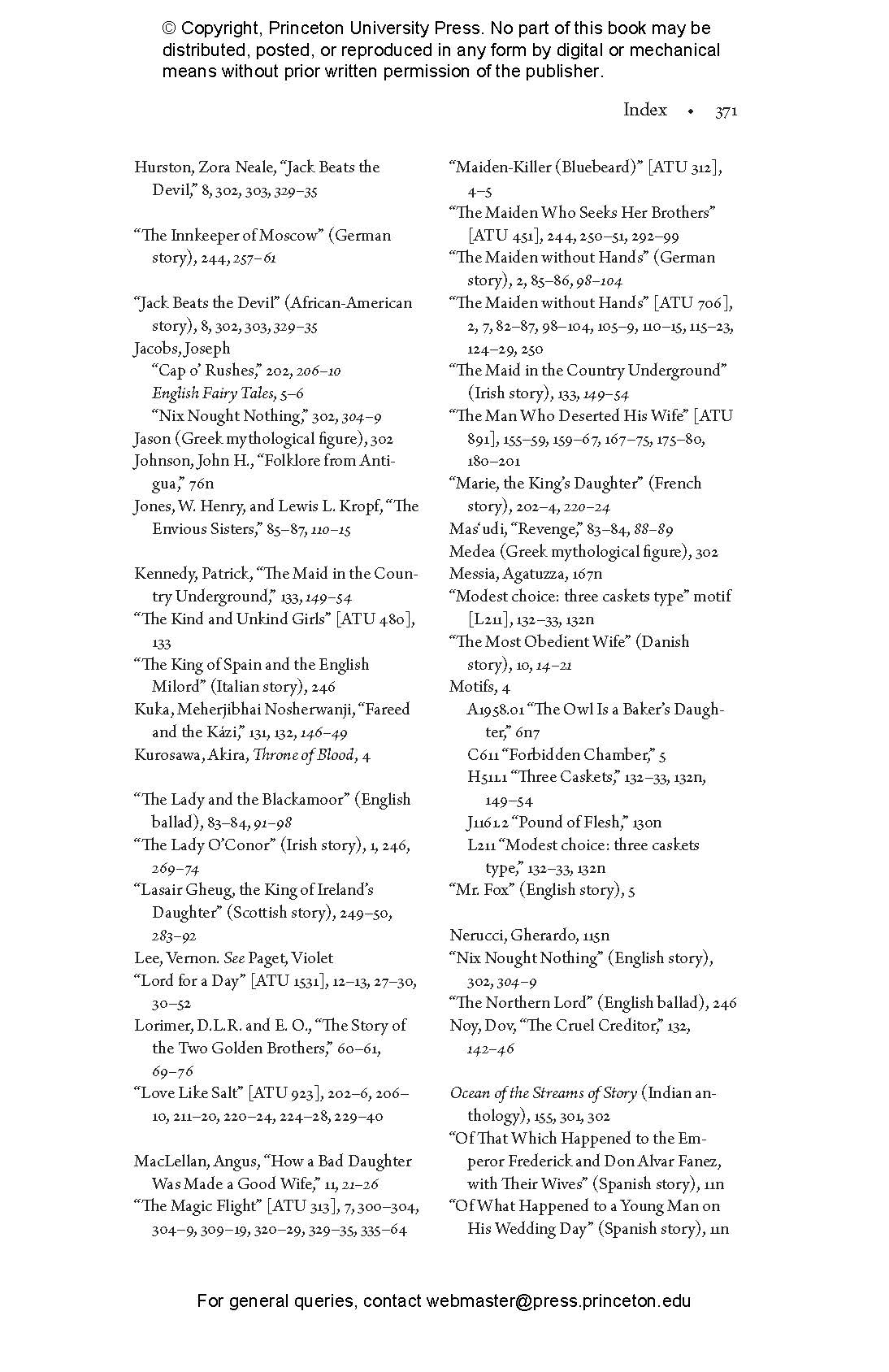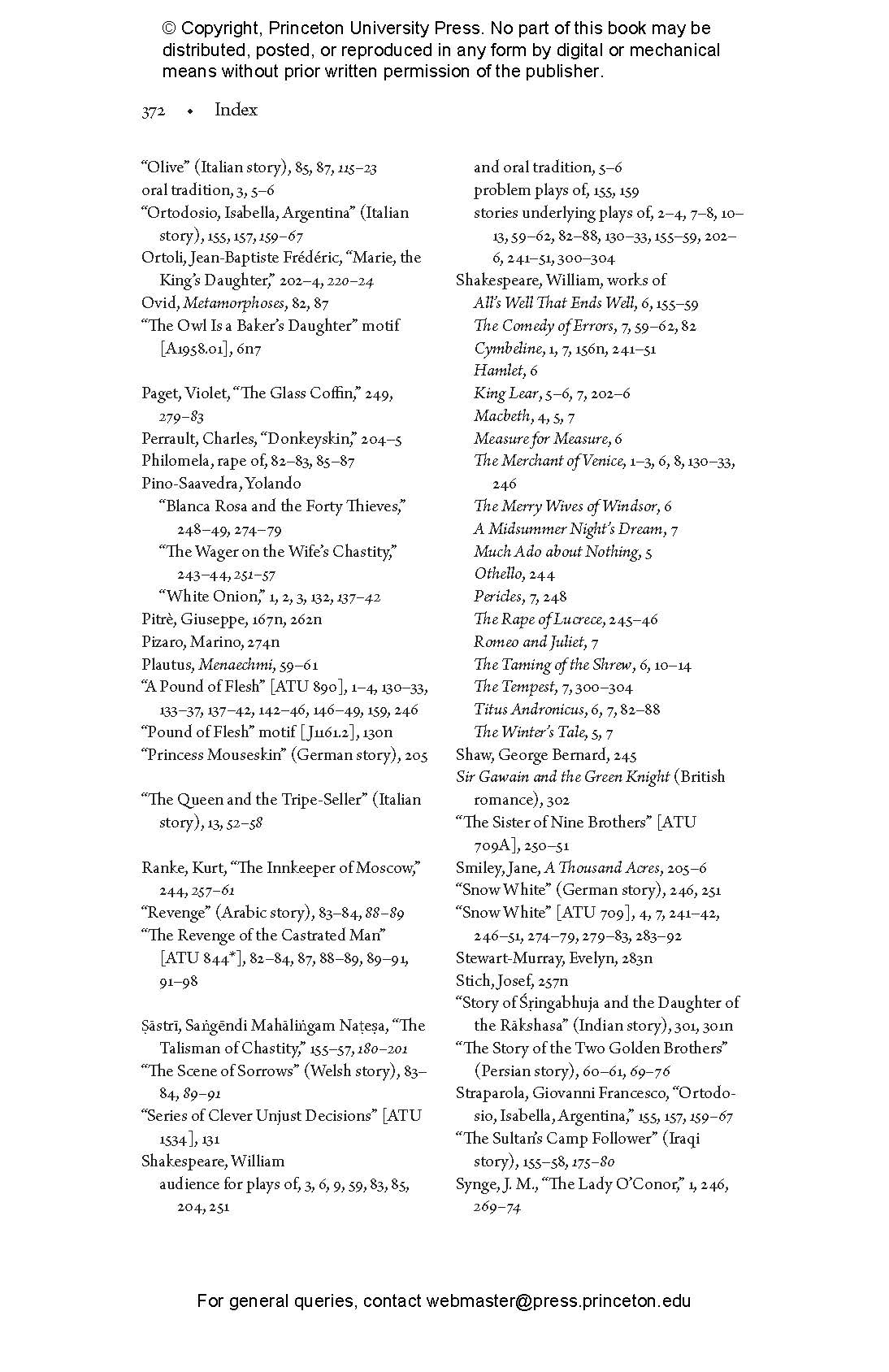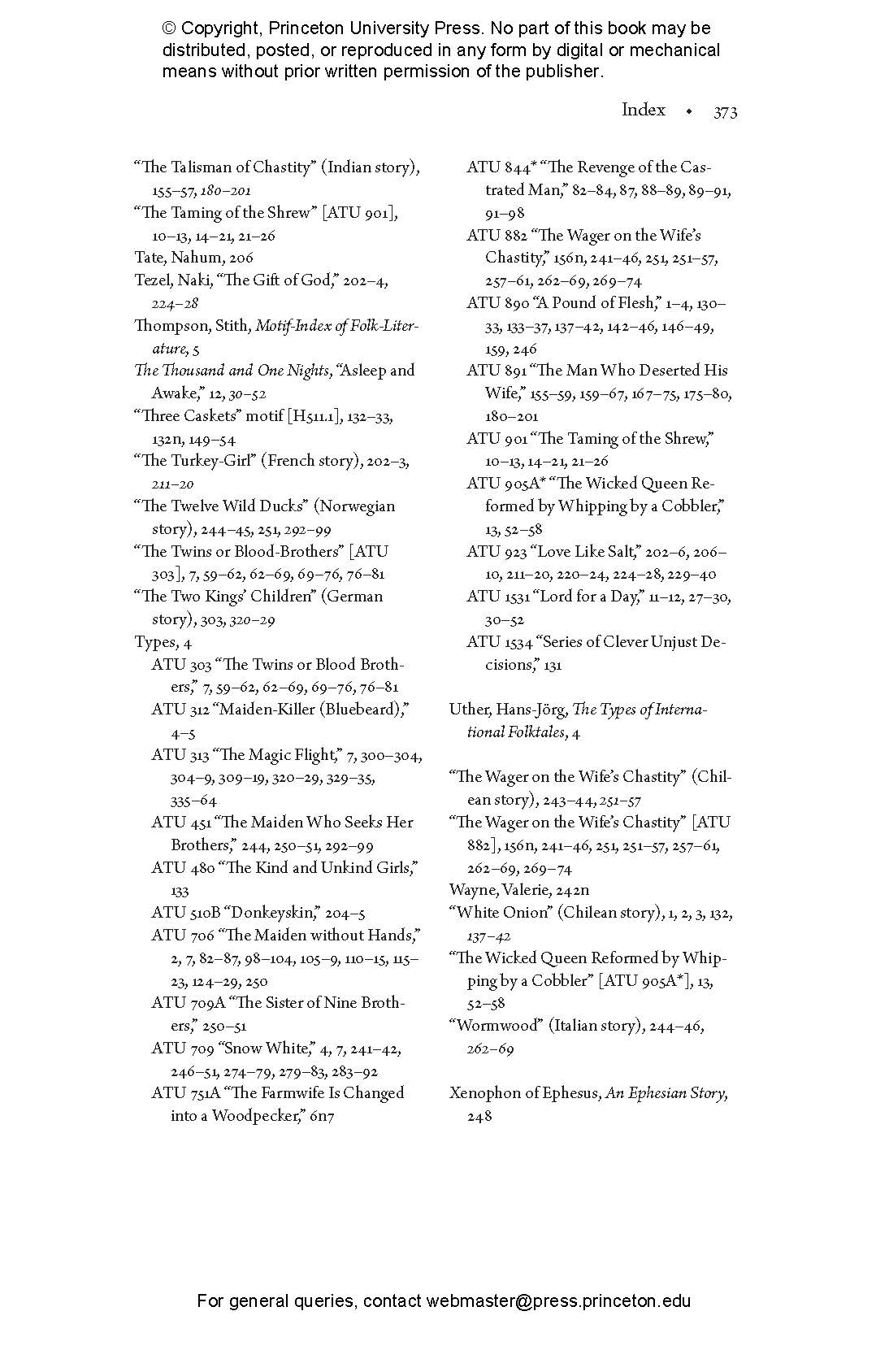Shakespeare knew a good story when he heard one, and he wasn’t afraid to borrow from what he heard or read, especially traditional folktales. The Merchant of Venice, for example, draws from “A Pound of Flesh,” while King Lear begins in the same way as “Love Like Salt,” with a king asking his three daughters how much they love him, then banishing the youngest when her cryptic reply displeases him. This unique anthology presents more than forty versions of folktales related to eight Shakespeare plays: The Taming of the Shrew, The Comedy of Errors, Titus Andronicus, The Merchant of Venice, All’s Well That Ends Well, King Lear, Cymbeline, and The Tempest. These fascinating and diverse tales come from Europe, the Middle East, India, the Caribbean, and South America, and include stories by Gerald of Wales, Marie-Catherine d’Aulnoy, Jacob and Wilhelm Grimm, Giambattista Basile, J. M. Synge, Zora Neale Hurston, Italo Calvino, and many more. Organized by play, each chapter includes a brief introduction discussing the intriguing connections between the play and the gathered folktales. Shakespeare and the Folktale can be read for the pure pleasure these lively tales give as much as for the insight into Shakespeare’s plays they provide.
"Artese’s anthology reinforces and opens the mind to another way to meet those audience needs, starting with the stories of the people. . . . A wonderful companion for any scholar or practitioner of classical theater, and it embraces the crossroads of study."—Kerry Kaleba, Journal of American Folklore
"[A]n intriguing delight for the Shakespeare lover. . . . Artese draws us back to our roots with a wonderful reminder bound up in a motley collection of folktales that have an immediacy and freshness that suggest they were written yesterday."—Ian Lipke, Queensland Reviewers Collective
"Artese has cannily styled her anthology to lend itself particularly well to adoption for courses aimed at studying Shakespearean drama alongside its folk influences. . . . The virtues of this anthology as a companion text for undergraduate students, who are sure to derive immense pleasure from detecting the resemblances among, and differences between, Shakespeare’s plays and these folktale traditions, are well worth exploring for those instructors looking for ways to engage novice students in texts all-too-commonly regarded with fear and dread."—Mark Albert Johnston, Renaissance and Reformation
"[An] attractive and useful anthology . . . [Shakespeare and the Folktale] presents teachers, students, and anyone interested in Shakespeare with revealing and intriguing avenues for discussion."—Juliette Wood, Folklore
"Shakespeare and the Folktale can serve as an excellent resource for teaching Shakespeare's plays. . . . Artese demonstrates how folklore was often central to Shakespeare's literary creativity, and her scholarship is a welcome addition to literary studies. This book also is a good resource for teaching courses in folklore, as there is sufficient variation in the texts to demonstrate the value of comparative studies of folklore. Thinking about folkloric influences in literary history is an excellent way to revitalize and further develop approaches used in the historic-geographic method. Artese's range of tales will be useful for thematically based studies of folklore, and also a resource illustrating the intrinsic value of the stories."—Gregory Hansen, Journal of Folklore Research
"Artese contextualizes Shakespeare’s work within Renaissance storytelling and shows how his writings are only a version of the stories we have come to know. . . . Great artists live and share the emotions of their age, and are part of the cumulative consciousness of past memories. Artese’s anthology helps us understand this."—Onyeka Nubia, Journal of British Studies
"This anthology can be perused by the general reader for sheer amusement, or by the academic who wishes to delve into the world of Shakespeare and the folktale. The links Artese derives between Shakespeare’s plays and the folktales she draws on are fascinating and well-explained."—Brittany Eldridge, AC Review of Books
"“[Shakespeare and the Folktale] is a wonderful companion for any scholar or practitioner of classical theater, and it embraces the crossroads of study. - Kerry Kaleba, Journal of American Folklore "
"Charlotte Artese's fascinating anthology stirs the rich mix of global folktales to set out dozens that are like those Shakespeare knew. Not a collection of his sources but a demonstration of the intriguing ways similar folktales turn up all over the world, here is a delightful set of variations on themes, a gathering of stories we don't quite know in these tellings of old tales."—Peter Holland, University of Notre Dame
"Shakespeare and the Folktale is a pleasure to read and a rich resource for anyone who loves Shakespeare or storytelling. The book's lucid introductions to each play and tale-type provide insight into how Shakespeare wrote the plays and how audiences engaged with and understood them."—Patrick Ryan, author of Shakespeare’s Storybook: Folk Tales That Inspired the Bard
"This delightful collection is certain to appeal to Shakespeare enthusiasts of all ages. The accessible introduction and framing essays brilliantly explain the value of folktales to Shakespeare study. And the folktales themselves—thoughtfully selected from diverse cultures and times—are enormously pleasurable to read. A must-have for Shakespeare teachers."—Gina Bloom, University of California, Davis
"This anthology is a revelation. It might change perceptions of Shakespeare's plays and reopen the challenging, central question of why they have had such a long and robust afterlife."—Douglas Lanier, author of Shakespeare and Modern Popular Culture
